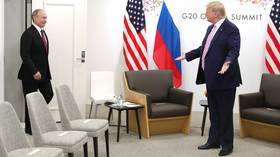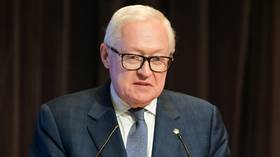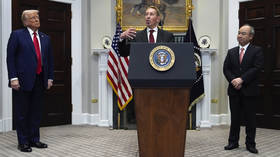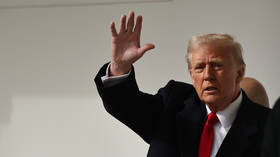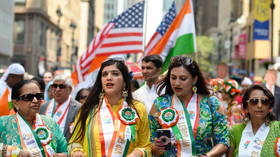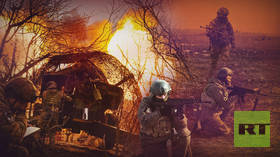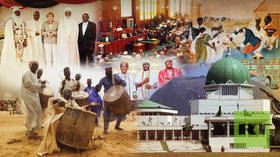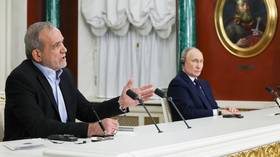US oblivion: Obama's weird tour of Asia
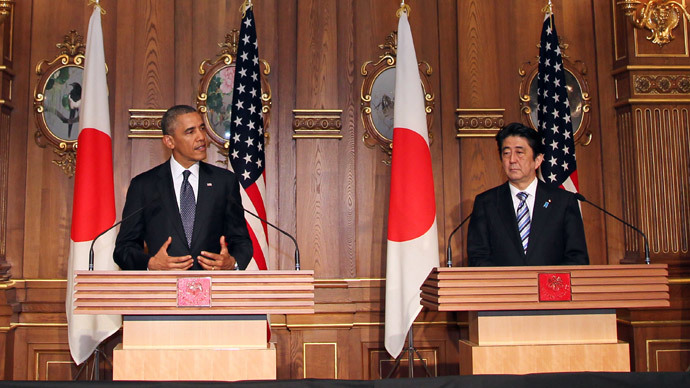
At the end of April, President Barack Obama swept through Asia like a storm, leaving behind him all sorts of political debris, as well as confusion, and often even deep embarrassment.
There were speeches clearly aimed at swelling anti-Chinese and anti-North Korean sentiments, and there were promises to ‘defend’ certain countries, including South Korea and Japan, although both of them appear to be more belligerent than their communist alleged adversaries.
There was immediate reaction from Pyongyang, calling South Korean President Park Geun-Hye a “prostitute,” and there was an ice-cold reaction from Beijing, calling on the US and Japan to “abandon their cold war mentality.”
The US language was, as always, patronizing, even insulting – as in The New York Times’ report:
“Jeffrey A. Bader, who was the senior China adviser on the National Security Council until 2011, said: 'The message is: Don’t think that what Putin is doing in eastern Ukraine is so brilliant that you should be inspired by it. Don’t think that this is a model that could work for you.'”
This kind of unsavory preaching is naturally despised in China and in many other countries.
But Obama’s visit was disastrous on many other fronts, too. There were trade deals proposed that never fully materialized, including those between the United States and Japan. There were bilateral trade agreements signed between the US and Malaysia, but the 12-country Trans Pacific Partnership (TPP), which commits countries to lower import tariffs and therefore horrifies local producers, never really materialized.

What actually occurred was the signing of what Reutersdescribed as “a 10-year military pact with the Philippines that opens the way for US troops, planes and warships to have greater access to bases in the Philippines.”
Officially, it was to ‘protect’ the Philippines from the rising ‘threat’ of China. Although many of the intellectuals in Manila see the United States as pitching southeast nations against its great neighbor.
Eduardo C. Tadem, a leading Philippine academic and professor of Asian studies at the University of the Philippines, commented for this report:
"The Obama administration has not departed substantially from the policies of its predecessors as far as foreign policy is concerned. Given this, it does not possess the moral authority to lecture China on the proper behavior of a big power in the Asia-Pacific region. Granted that China has not been on its best behavior with respect to the territorial disputes it is embroiled with in the region, it is the US, on the whole, that has done much more damage against Asian peoples and societies with its imperial policies in both the economic and political spheres. Neither does it have the moral authority to lead Asian societies in charting a new economic order given its own failed economy with high unemployment and continually rising inequalities."
Malaysia became a brand new addition to the list of US ‘allies’ in the region, although, to what extent, still remains to be seen.
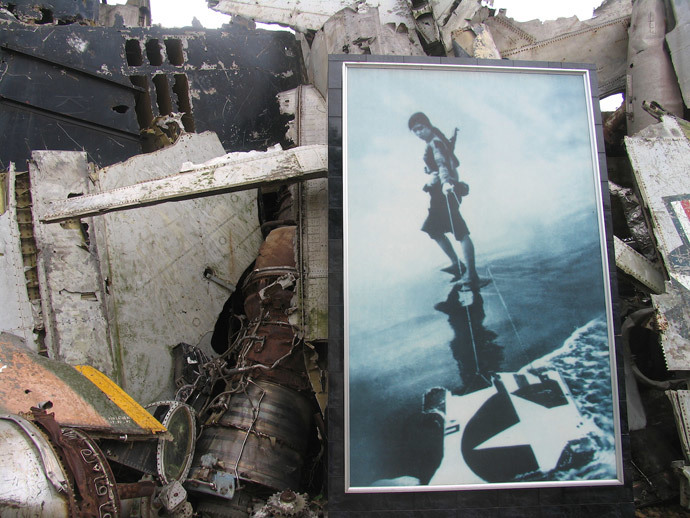
As I landed at the habitually super-efficient Kuala Lumpur International Airport on April 26, long lines formed queues before the immigration counters, and arriving passengers were fingerprinted – something that is very rarely done in Malaysia.
The rail network had collapsed, express trains were running on local tracks, and I was told that many of the roads in the capital had been blocked.
Overall, in Malaysia, the entire ‘presidential charade’ was thoroughly embarrassing, even from the point of view of the former ruler of the country, and one of the most outspoken critics of the West on the Asian continent, Dr. Mahathir Mohamad. The former prime minister particularly distrusted the proposed TPP or TPPA. Malaysian filmmaker and TV producer Azreen Madzlan shared her experience with me:
“According to former Prime Minister of Malaysia, Tun Dr Mahathir Mohamad during an interview with a local business channel Capital TV, for the show that I was producing, Malaysia should not be compelled to sign the Trans-Pacific Partnership Agreement (TPPA) just because of President Obama’s visit to Malaysia this weekend. Tun M who has openly roasted Najib’s administration for its intention to sign on with the non-transparent deal continues to warn that TPPA is a controlled trade agreement put together by an impoverished nation trying to exploit the natural resources of other countries.”
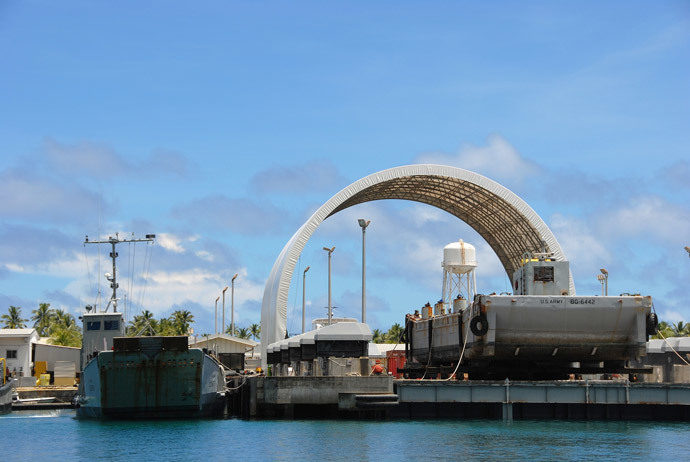
But the Malaysian media had chosen to welcome the supreme leader of the Western world with loud fanfares, even using the most poetic words.
Huge headlines shouted from the top of most of the local dailies: 'Hello Malaysia,' the self-proclaimed 'people's paper,' the Sunday Star, wrote as it depicted the grinning face of Barack Obama. The paper then commented: “Flashing his infectious smile, President Barack Obama stepped out of Air Force One, gave his customary right handed “hello” wave – and charmed every one of the dignitaries who met him as he arrived for his official visit to the country. It will be a busy day for him before he leaves for Manila tomorrow.”
Western media opted for a wide range of attitudes, from hardcore propaganda to the phlegmatic style adopted by The New York Times:
“On Sunday, President Obama visited Malaysia to underscore how much has changed in the past 16 years – not least in the country’s attitude toward the United States, which has evolved from deep suspicion, verging on contempt, to a cautious desire for cooperation.”
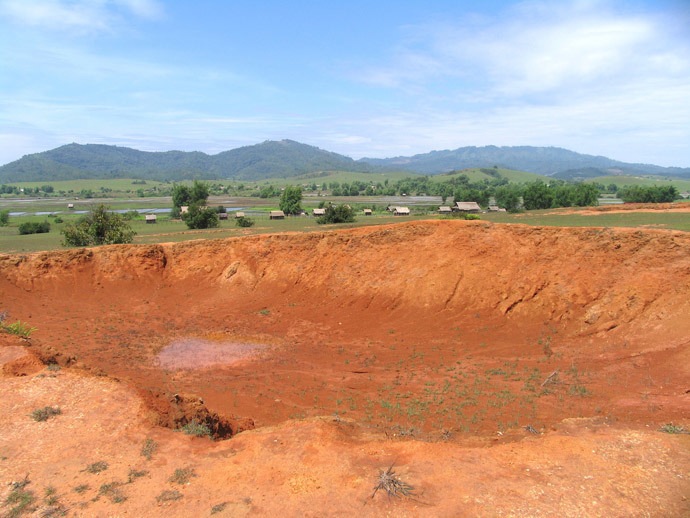
Legendary Malaysian political activist Hishamuddin Rais (he identifies himself as a ‘non-government individual’) wrote for this report:
“Obama is trying to recreate the atmosphere of the Cold War in Asia in particular and globally...Obama’s trip to Malaysia in particular is aimed at the Malaysian leadership to open up and allow access to the Malaysian market. At the same time America is keen to have a military arrangement with Malaysia, i.e. the possibility of having a base. This is a move partly to control the Southeast Asian market and also to contain what Americans term as the danger of China. Obama is trying to create a wedge between ASEAN nations and China. In Malaysia in particular, with the weak government of Najib Razak, Obama will force Najib to sign the TPPA trade agreement. It is a fact that TPPA will be destructive to the domestic market.”
There was plenty of cliché propaganda talk from US officials about ‘defending democracy,' about freedom and trade, and about all those ‘terrible countries’ that the ‘benevolent and wise West’ has to ‘deal with.'
The increasingly aggressive role of the United States and the 'Western world’ has not been discussed in the suddenly over-polite local media outlets. It should have been. Because between the lines, it was clear that the goal of Obama’s journey was to flex muscles, and to show Asia who is still in charge here.
And of course, to re-pledge support for the most obedient ones, like Japan and the Philippines, over their policy towards China, or in the case of Japan, its open hostility towards the great neighbor.
It is essential that the Asian countries that are now willing to collaborate with the West are actually becoming co-responsible for what can be best described as the imperialist, neo-colonialist, even fascist, adventurism of North America and Europe.
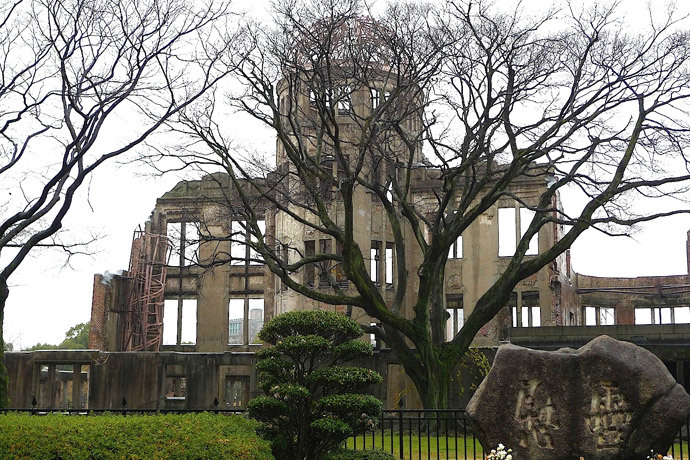
In the future, history may judge them very harshly!
The West, including the United States, has embarked on all sorts of genocidal projects all over the Asia Pacific region for centuries. It has terrorized this part of the world with tremendous force and determination, from Vladivostok to East Timor.
Be it not for the servility of Asian leaders, and for the total manipulation of history, Air Force One would have been met with jet fighters and interceptors – not with flowers and national anthems.
The problem is that in the Asia Pacific region, in many parts of it at least, the countries are governed by thoroughly shameless ‘elites’ (read thugs, bandits), and these individuals are united with Western economic and political ‘leaders' in their determination to plunder and mug everything that grows, hides below the surface, and even walks and talks.
This is especially true about the places like the Philippines and Indonesia, but also about Thailand, Cambodia, and even, to a lesser extent, South Korea.
Japan is an exception, as it has willingly and shamelessly been exchanging its independence for a rich and comfortable quality of life, willingly accepting the role of an obedient, sclerotic, and depressed (but extremely well paid) servant of the West, on the Asian continent.
David McNeill, a leading expert on Japan and a Professor at Sophia University, recently explained during our conversation and the filming of my Okinawa documentary, in Tokyo:
“Japan, after the Second World War, aligned itself very quickly with America… And Japan’s military alliance with America is also accompanied with, what critics would say, its subservient attitude towards Washington.”
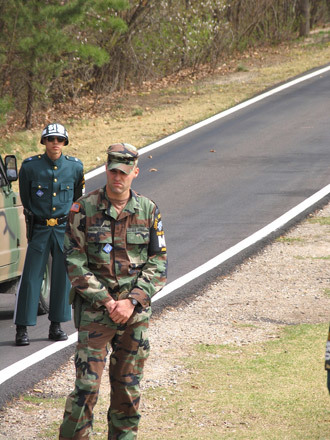
Let’s just revisit a few of the most horrifying atrocities the West performed in the Asia Pacific region, in the last hundred years or so.
Both British and US forces occupied, brutally, the city of Vladivostok in Russia's Far East after the Bolshevik Revolution.
China was plundered and colonized by European forces, brutally and relentlessly.
Korea was terrorized by mainly North American troops, with the most horrific toll on the local, mainly civilian population, with an estimated death toll of over four million people.
During WWII, Japan endured firebombing and the carpet-bombing of its cities, including Tokyo, as well as basically, two nuclear experiments against its population in Hiroshima and Nagasaki.
The French barbarically tortured, raped, and mutilated the people of Vietnam, but also those of Laos and Cambodia. The savagery exceeded even that of the later US ‘involvement,' as many local people, whilst I lived in Hanoi for three years, explained to me.
In 'Indochina,' the US, of course, bombed to ashes entire cities, poisoned the countryside, raped the female population of entire villages, and committed atrocities comparable only to those they themselves had earlier committed in Korea. Historians are still arguing about the death toll: Was it six million or ten million, during what they called the ‘Vietnam War’ and the ‘Secret War in Laos?' (In that part of the world, that genocide is squarely identified as the ‘American War’).
The US also made sure to open the doors to the Khmer Rouge in Cambodia (by carpet-bombing most of the Cambodian countryside into the stone ages), later vocally demanding their return to power, from the floor of the United Nations and other organizations. All that, of course, happened after Vietnamese troops had kicked out Pol Pot’s boys and girls from power (the US considered it a great crime).
Kissinger had it very clear: He suggested that “anything that flies should be used against anything that moves,” and he had it his way. And he never faced a firing squad for this, although his tactics were not too different from those employed by the German Nazis.
In the Philippines, the US committed much greater atrocities than Japan (including the Balanginga massacre), but a brainwashing campaign, and the servility of most of the local media, made it impossible to discuss these topics openly.
The Philippines were brutally colonized by both Spain and the United States, but the US propagandists have managed to re-narrate the entire history of the archipelago.
British rule in what is now Malaysia and Singapore was very far from benevolent.
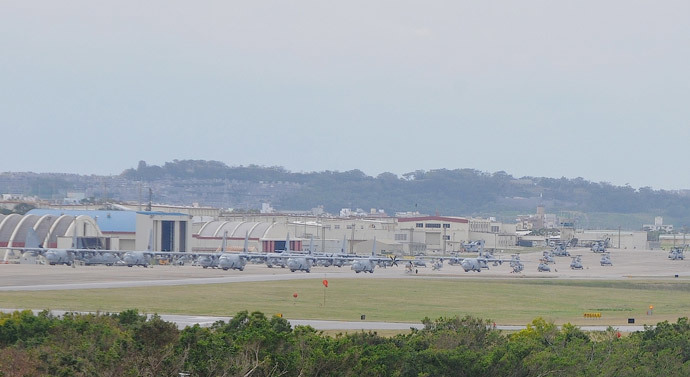
The Thai Western ally murdered its communists, as well as student protesters, and placed its territory at the disposal of the West during the Vietnam War.
Indonesia was repeatedly attacked by the United States from its bases in the Philippines, during the reign of the progressive and anti-Western President Sukarno.
The US-sponsored military coup brought the military junta to power, and some two to three million Indonesians were murdered – mainly communists, Chinese citizens, and intellectuals. Fascist Indonesia then occupied (with the support of the West) tiny East Timor, where some 30 percent of the population lost their lives in a horrific genocide. Western media hushes up coverage of the ongoing genocide against the Papuan population, as it greatly benefits the interests of Western mining companies.
Still, collaboration with the US appears to be an attractive option to many governments in the region.
China is watching, and, not surprisingly, it appears that it does not like what it sees at all. Russia, another great ‘Asian’ power is even more outraged. North Korea is, as always, ‘ready.'
Mr. Obama may count on the weak and submissive allies, but Asia is changing. It is evolving. It is watching. It may soon begin saying “No.”
Mr. Obama decided to visit South Korea but not China.
Does it matter? Maybe...but for how long?
"If you come or do not come, we will be here," said Chinese Foreign Ministry spokesman Qin Gang.
Andre Vltchekis a novelist, filmmaker and investigative journalist. He can be reached through hiswebsiteor hisTwitter.
The statements, views and opinions expressed in this column are solely those of the author and do not necessarily represent those of RT.
The statements, views and opinions expressed in this column are solely those of the author and do not necessarily represent those of RT.




